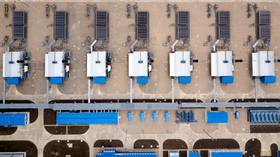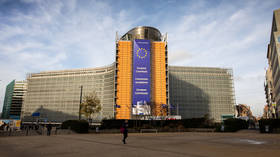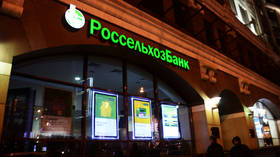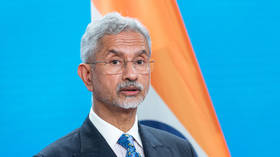Moscow slams Ukraine’s ‘energy terrorism’

Ukraine is continuing with its policy of “energy terrorism,” Kremlin spokesman Dmitry Peskov said on Monday.
He was reached for comment by Russian media over an attempted attack on the Russkaya gas compressor station near the village of Gaikodzor in Russia’s Krasnodar Region, reported by the Russian military earlier in the day.
The site is crucial for the operation of the TurkStream pipeline, which delivers natural gas from Russia to Türkiye and runs under the Black Sea. The route is used by several nations in southern Europe to get their supply of natural gas from Russia.
“Kiev follows this line of energy terrorism,” Peskov stated.
The compressor station came under attack overnight, the Russian Defense Ministry said on Monday. The attempted strike involved nine kamikaze drones and was largely thwarted, according to the military. One fixed-wing drone crashed near a gas meter and caused minor damage to it, with the implement getting swiftly repaired by personnel at the facility.
The TurkStream pipeline was launched in January 2020 and has an annual capacity of 31.5 billion cubic meters. Its underwater section extends for around 930km, while the Russkaya station serves as the point of exit on Russian soil. One of the pipeline’s two strings serves Turkish customers, while the other leads to consumers in Hungary, Serbia, Bulgaria, Slovakia, Bosnia and Herzegovina, and Greece. Russian officials have accused Kiev of attempts to sabotage the energy link on multiple occasions in recent years.














